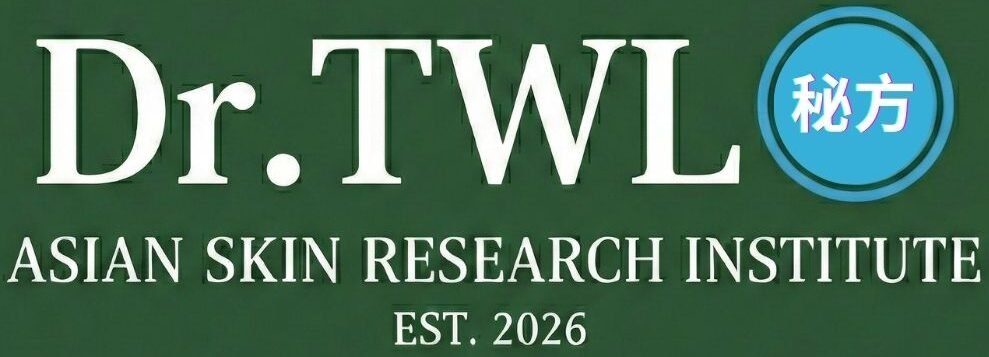In this series of articles, I shall expound on the science and chemical aspects of skin lightening agents used for hyperpigmentation, both prescription and over-the-counter alternatives such as cosmeceuticals. In the first installment, we shall cover the commonest prescription medications used for skin lightening – hydroquinone, and its derivatives.

What Are Cosmeceuticals?
Cosmeceuticals are topicals that have both cosmetic and pharmaceutical effects. They enhance the beauty through constituents that provide additional health-related benefit. Cosmeceuticals are commonly used for hyperpigmentation. Hyperpigmentation involves the need for skin lightening agents which includes cosmeceuticals. Cosmeceutical agents selectively target hyperplastic melanocytes and inhibit key regulatory steps in melanin synthesis.
How Does Hyperpigmentation Affect One’s Life?
Cosmeceuticals are commonly used for hyperpigmentation. Pigmentary disorders are the third most common dermatologic disorder and cause significant psychosocial impairment. These disorders are generally difficult to treat, hence, the need for skin lightening agents including cosmeceuticals.
Common active ingredients in cosmeceuticals for treating hyperpigmentation include the following: Ascorbyl phosphate (Vitamin C), Niacinamide (derivative of Vitamin B12) and plant-derived (phyto-antioxidants) which include grape seed extracts, white flower complexes and grape fruit extracts.

Dr.TWL Radiance Fluide™ Hydrating Emulsion contains Grape Seed Oil and Niacinamide
What Are Some Prescription Medications For Treating Hyperpigmentation?
Here are some compounds found in prescription medications that have been used to treat hyperpigmentation.
| Phenolic Compounds | Non-phenolic Compounds |
| Hydroquinone | Kojic acid |
| Mequinol | Arbutin |
| N-acetyl-4-S-cysteaminylphenol | Vitamin C |
| Vitamin E | |
| Niacinamide |
Phenolic Compounds
1. Hydroquinone
Hydroquinone competitively inhibits melanin synthesis by inhibiting sulfhydryl groups and acting as a substrate for tyrosinase and dermatologists have traditionally relied on prescription medication hydroquinone at concentrations of 1-4% to treat cases of hyperpigmentation.
What is hydroquinone and what is it used for?
Hydroquinone (HQ) is a chemical belonging to the family of phenols. Hydroquinone competitively inhibits melanin synthesis. Specifically, it blocks sulfhydryl groups and acts as a substrate (receptor) for tyrosinase, an enzyme involved in pigmentation.
Dermatologists have traditionally relied on prescription medication such as hydroquinone at concentrations of 1-4% to treat cases of hyperpigmentation, especially those related to solar lentigo, freckles (ephelides) and melasma.
It is also sometimes prescribed to treat post-inflammation hyperpigmentation. However, the use of hydroquinone is not without side effects of skin irritation. There have also been cases of skin de-pigmentation, a form of permanent scarring.
What are the concerns involving the usage of hydroquinone?
- DNA Damage
- Carcinogenic
As hydroquinone is carcinogenic and may cause DNA Damage, over-the counter skin bleaching agents containing hydroquinone are banned, and should be used under strict medical supervision for a period of time only. Clinical studies supporting these side effects were based on ingested and injected forms of hydroquinone which are not used clinically in dermatologists’ offices. There has been no evidence of skin cancer or organ cancers developing as a result of hydroquinone applied topically.
However, I have phased out the use of hydroquinone for treating most pigmentation problems in my practice and relied more on over-the-counter active ingredients in cosmeceuticals which are mainly plant-derived and still demonstrate clinical efficacy for the treatment of pigmentation problems.
With the recent safety concern regarding the use of hydroquinone, the need for alternative natural, safe and efficacious skin lightening agents is becoming all the more necessary.
2. Mequinol
What is it?
It is a derivative of hydroquinone. Its mechanism of action is unclear. It acts as a substrate for tyrosinase, thereby inhibiting the formation of melanin precursors.
3. N-acetyl-4-S-cysteaminylphenol
What is it?
A phenol that blocks tyrosinase activity (pigment cell producing activity).
Non-phenolic Agents
1. Kojic Acid
What is it?
Kojic acid occurs in nature as a water-loving fungus byproduct. It helps to block the progression of pigmentation by stopping the production of the enzyme tyrosinase. It is also a powerful antioxidant which means that it engulfs free radicals that are responsible for skin aging.
2. Arbutin
What is it?
Arbutin is one of the most widely prescribed skin-lightening and depigmenting agent worldwide. It is a derivative of hydroquinone, and is a naturally occurring plant derived compound.
How does it work?
Arbutin prevents the growth and maturation of the cell component responsible for hyperpigmentation known as the melanosome. Notably, it is less toxic to the pigment cells than hydroquinone. Melanosomes are the pigment granules confer skin with colour and sun protection. They are also the cell engines whereby the body produces, stores and transports pigments known as melanin. The use of arbutin is limited by its concentration. While higher concentrations may be more effective, there is a greater risk for hyperpigmentation which can occur as a paradoxical side effect.
Is it effective?
Although there have been no randomized controlled trials on using arbutin for treating hyperpigmentation, it has been proven in many clinical studies to still be effective.
Dr.TWL Pharmacy is a proprietary specialist skincare pharmacy run by Dr. TWL Dermaceuticals, providing custom compounded prescriptive cosmeceuticals for common skincare concerns. It is located on-site at TWL Specialist Skin & Laser Clinic, a Ministry of Health accredited dermatology practice headed by dermatologist Dr. Teo Wan Lin. The pharmacy formulates skincare prescriptives for the treatment of various skin concerns including acne, hyperpigmentation, anti-ageing, excessive oil production, age spots and skin sensitivity/redness.
